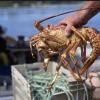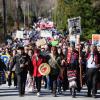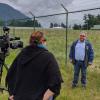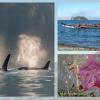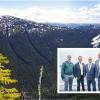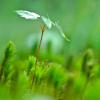Indigenous peoples, including the Mi’kmaq, have been on Turtle Island for millennia, living in complex societies, sustainably governing their territories and ‘resources’, including fisheries.
Environmental Law Alert Blog
Through our Environmental Law Alert blog, West Coast keeps you up to date on the latest developments and issues in environmental law. This includes:
- proposed changes to the law that will weaken, or strengthen, environmental protection;
- stories and situations where existing environmental laws are failing to protect the environment; and
- emerging legal strategies that could be used to protect our environment.
If you have an environmental story that we should hear about, please e-mail Andrew Gage. We welcome your comments on any of the posts to this blog – but please keep in mind our policies on comments.
West Coast is proud to share the news that our Executive Director and Senior Counsel, Jessica Clogg, has been selected as one of Canada’s Top 25 Most Influential Lawyers in Canadian Lawyer
As Canada’s Parliament returns to session this fall, we must make sure that a green and just recovery is the government’s top priority. We don’t have a moment to lose – big polluters have been busy lobbying for bailouts and exemptions from environmental rules.
Summer 2020 has been intense, to say the least – but luckily this summer we've had a group of dedicated law students to energize and inspire our work at West Coast.
By Rayanna Seymour-Hourie – on Canada’s 153rd birthday
On Friday June 12, the Trans Mountain pipeline spilled an estimated 190,000 litres of oil at the Sumas Pump Station near Abbotsford, BC. This is the 85th oil spill from the nearly 70-year-old pipeline, confirming the fears of many that oil spills are inevitable.
The Great Bear Sea, also known as the Northern Shelf Bioregion on the north coast of BC, is an area of profound beauty, ecological diversity and cultural richness. Rich ecosystems support an abundance of life – from salmon, herring, humpback whales and orcas to seabirds, bears and wolves.
This pandemic is a stark reminder of how our economies and societies are interdependent, and how the well-being of humans, other living beings, and ecosystems, are deeply connected. Only a healthy planet can support healthy people.
Earth Day is a time for us to reflect on all that our planet has given to us and to celebrate those who have worked tirelessly to strengthen our relationship with the environment.
In 1972, two years after the alarm bell of the first Earth Day, law professor Christopher Stone made the case for legal rights for nature in Should Trees Have Standing?

